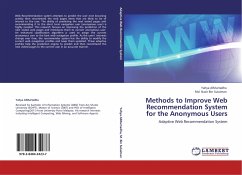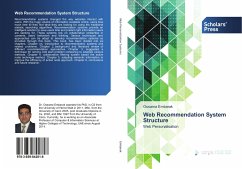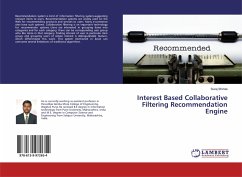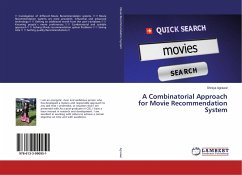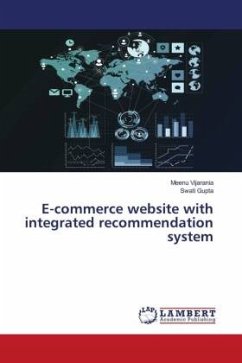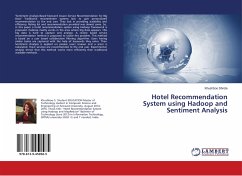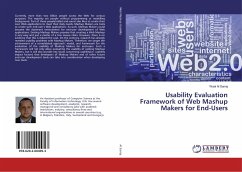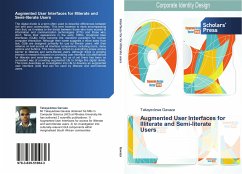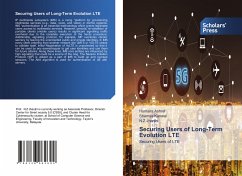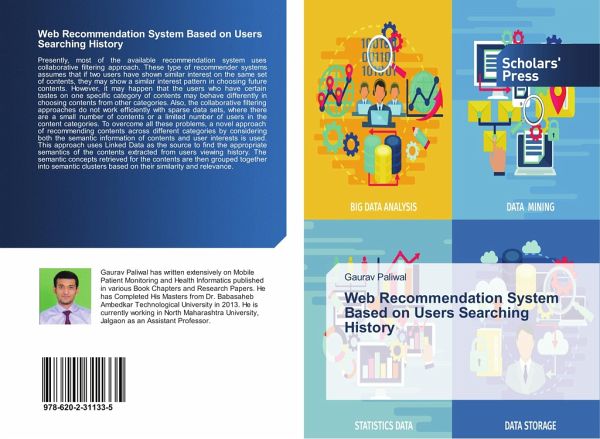
Web Recommendation System Based on Users Searching History
Versandkostenfrei!
Versandfertig in 6-10 Tagen
30,99 €
inkl. MwSt.

PAYBACK Punkte
15 °P sammeln!
Presently, most of the available recommendation system uses collaborative filtering approach. These type of recommender systems assumes that if two users have shown similar interest on the same set of contents, they may show a similar interest pattern in choosing future contents. However, it may happen that the users who have certain tastes on one specific category of contents may behave differently in choosing contents from other categories. Also, the collaborative filtering approaches do not work efficiently with sparse data sets, where there are a small number of contents or a limited numbe...
Presently, most of the available recommendation system uses collaborative filtering approach. These type of recommender systems assumes that if two users have shown similar interest on the same set of contents, they may show a similar interest pattern in choosing future contents. However, it may happen that the users who have certain tastes on one specific category of contents may behave differently in choosing contents from other categories. Also, the collaborative filtering approaches do not work efficiently with sparse data sets, where there are a small number of contents or a limited number of users in the content categories. To overcome all these problems, a novel approach of recommending contents across different categories by considering both the semantic information of contents and user interests is used. This approach uses Linked Data as the source to find the appropriate semantics of the contents extracted from users viewing history. The semantic concepts retrieved for the contents are then grouped together into semantic clusters based on their similarity and relevance.



